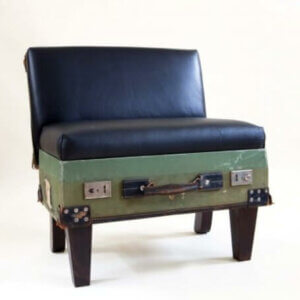Last fall, a friend of mine traded a large empty tank that was designed for water storage.
He was planning to complete a project with it that never got started and his wife said it had to go. He traded that tank to a local farmer for maple syrup this spring. The farmer needed it to collect the sap to make syrup.

The two men agreed on an amount of value, my friend dropped off the tank. A few weeks ago, he and the farmer met as agreed and now my friend is enjoying fresh maple syrup on his flapjacks.
Bartering can be a great way to get something you need and build up a community at the same time. For bartering to be successful, keep these simple guidelines in mind:
1. Know the value of your trade
No matter if you interested in trading a service or goods, you need to know the value of what you have and what you are asking for. If what you are offering is more or less than what the other person is offering, then you need to negotiate. You can negotiate more trade items or cash, but having an understanding of the worth of your offer is important. You can check online stores or catalogs to compare prices on new or like new items, or search Craigslist or eBay for pre-owned item listings.
Related Post: Bartering 101: How To Start A Babysitting Co-op
Two artists I know exchanged goods – one who made wooden cutting boards, the other a potter – agreed to exchange goods based on the retail prices of their work. They both got nice gifts for their spouses and now pass customers back and forth as well.
2. Decide in advance what is being traded and what the time frame is for trade
Before you drive off with your new treasure or use a barter service, be sure you have worked out exactly what is due to both parties. If the exchange isn’t happening fully at the same time, be sure you know when and where the final exchange is to take place. Be clear so there is no chance anyone will be disappointed.
3. Keep it in writing
Email makes this easy. Write down what you are trading and when so that everyone is on the same page. This will help avoid confusion later on.
4. Taxes
Stay honest with the IRS – the IRS still wants to record your trades over certain values, so check with your tax professional or seek information from the IRS. And even though bartering by definition involves the exchange of goods instead of money, the IRS expects their cut to be in cash.
5. Final thoughts
Don’t be afraid to offer to barter with someone. Many times people are rich in goods or services but not cash. If you have a skill that is valuable don’t be afraid to offer it to someone who makes or does something you need. If they say no, just remember your manners and say thanks anyway. They may change their mind later.
Editor’s note: We’ll be posting more on bartering and swapping in the future. For now, check out Shareable’s How To Barter, Give and Get Stuff and The Barter Starter Legal Guide.
Have you ever bartered for something you needed or wanted? Tell us how it went!










































Nice article, Beth. It is a reminder about an option that is unknown to many, and as you say, it not only saves people money and avoids turning useable items into trash, but bartering also builds a feeling of connection (community).
Similarly, when I give away or sell a used item at a low or even market price on Craigslist, I also get that good feeling. When I know that an item does not have much cash value, I often offer it free, but only for pick-up by non-profits (and with the stipulation that they provide a letterhead document to me for the gift). I have given away flat screen displays and printers in that mode, and the non-profits are quite grateful.
It’s nice to see an article on barter. It amazes me how little barter is used (especially in the business world). Barter is perceived as an “old world” method of exchange best be left to Luddites.
Our economic woes are not “not having enough,” but rather the personal distribution of what we do have. The opportunity for “resource maximization” is ripe at present with us coming out the overconsumption of the last twenty years. And barter is one aspect of this.
We have to open our eyes to the huge potential barter, sharing and other “resource maximization” techniques have in creating better lives for us all. The sooner we learn, that the inefficiencies of the transactional marketplace need not limit our wellbeing … the better.
I love the idea of bartering as described in the article. I like the going back to knowing neighbors, buying local and reducing wasteful spending
Very informative and creative manner of approaching different tasks….
I wonder if there are any venues that I could be put in touch with where I could barter for a roof. I am 66 and disabled but have a variety of valuables.
Thank you.
Kindest regards,
Susan
The City of London Corporation recently launched a report about barter exchanges and excess capacity exchange.
The research explores existing and potential applications of multilateral reciprocal trade, including countertrade and corporate and retail barter. Reciprocal trade constitutes an estimated 20% (over US$100 billion) of global trade but contracts and negotiations tend to be lengthy and complex. The emerging multilateral reciprocal trade sector offers the potential to eliminate the inefficiencies of bilateral capacity exchange through the mechanism of common tender – an alternative means of exchange to sovereign currency which is not convertible to cash, earns no interest and can only be redeemed for goods and services within the capacity exchange.
The report can be found on the City of London Corporation website. It speaks about Recipco and the Ormita Commerce Network as well as other barter exchanges like the Swiss WIR.